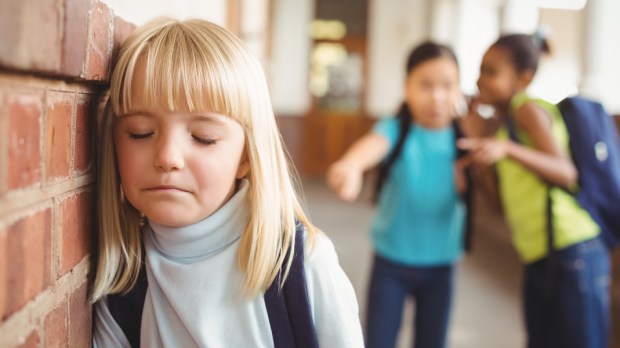For several years, my oldest daughter was bullied relentlessly at her school. Repeated pleas to the administration to address the situation went nowhere. Various tactics we taught her (like walking away, deflecting with humor, or saying stop) were similarly useless.
The final and most desperate strategy I had to was to go to the parents of her classmates (except the one doing the bullying), tell them what was going on, and ask them to encourage their daughters to befriend and stand up for Sienna.
Only one mother was willing. The rest became visibly uncomfortable and seemed to find it necessary to defend the character of the bully. They dismissed it as “the age” or “cat fights” or “popularity contests,” and said their own daughters had always been treated well by the bully, so the problem couldn’t be with her. It must be with Sienna.
Psychology Today recently wrote about Natalie Hampton, the creator of “Sit with Us,” an app that aims to take down bullying by letting kids find a welcoming place to sit in their lunchroom. Natalie was the victim of severe and malicious bullying for two years in middle school … bullying that didn’t stop until she moved to a different school. In her new school, someone asked her to sit with them on the first day. She made friends easily, and realized that she wasn’t bullied at her old school because of some personal deficiency — she was bullied because she had no social capital. Psychology Today explains why a child with no social capital is unlikely to attain any in their current environment.
Without the social protection that children provide for their friends, a child without friends is an easy target; and a useful one. Unkind behavior toward children without social status is rewarded with social capital and elevated social status — because it highlights the status differential. Calling attention to this difference in status results in a depletion of social capital and a lowering of social status for the target of that unkindness, who has no one to intervene. Defending a low-status child is like touching someone with “cooties,” so bystanders rarely step in. In contrast, allying with socially aggressive, high status children earns social capital without risking any — with no one to defend their low-status targets, there are no negative consequences for bystanders who laugh or join in. Even when they do nothing, bystanders encourage aggression because doing nothing further proves that the target has no one on their side.
The girl whose mother encouraged her to befriend Sienna changed her life. With a friend at her side, other girls were willing to be friendly as well. None were really friends — she only had one real friend, a true best friend. But having one friend meant that other kids weren’t risking their own social capital by being friendly to her.
Sadly, her best friend left the school and moved away before the end of the school year and Sienna’s social capital vanished along with her. The bullying resumed immediately, and our only choice was to find a new school for her.
Sienna has plenty of friends in her new school. But like Natalie, she doesn’t want anyone else to suffer the same fate. She makes it a point to befriend kids who are teased or bullied, no matter what the reason is. They don’t always become fast friends, and sometimes they even end up disliking each other. But it’s important to her to make the effort to stop bullying before it can get started.
It should be important for all of us. Even adults abide by the invisible pull of social capital. No one really wants to befriend the new neighbor down the street with lots of kids and no husband, or no kids and lots of cats, or no cats and lots of husbands (kidding about that last one). But we should. Everyone needs friends … why not be one?
Read more:
WATCH: Rock, Paper and Scissors Unite Against Bullying

